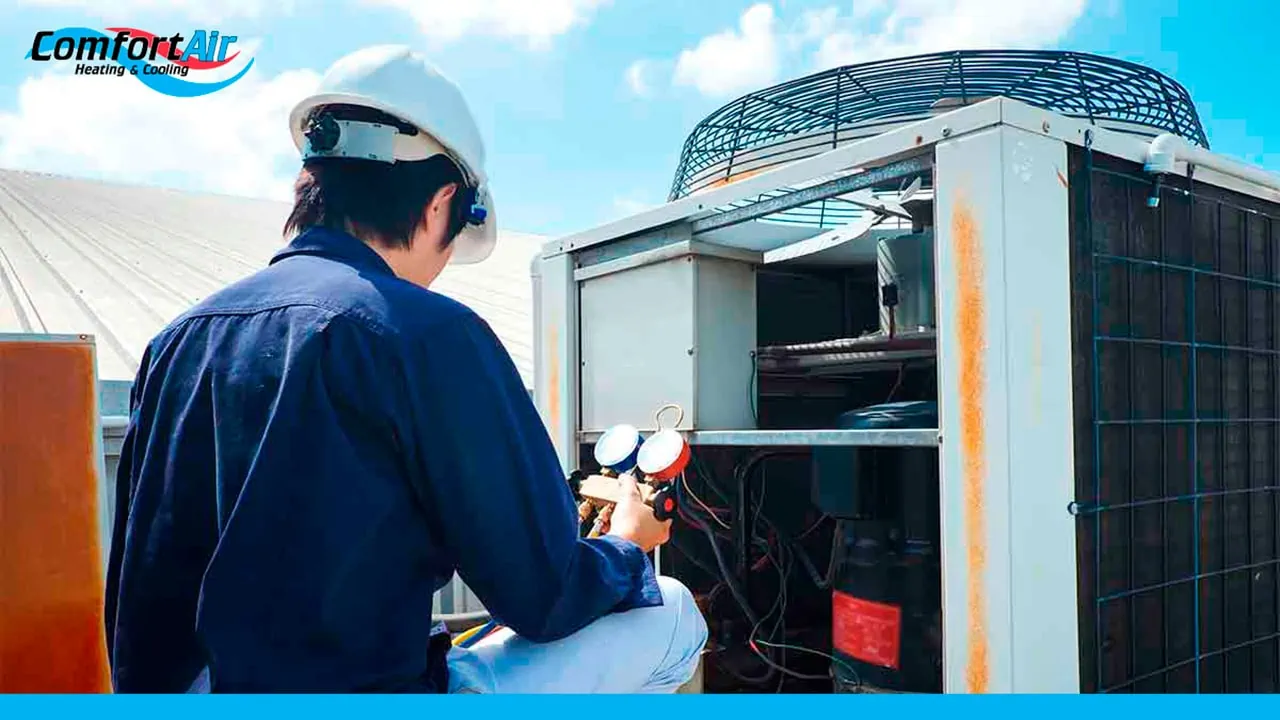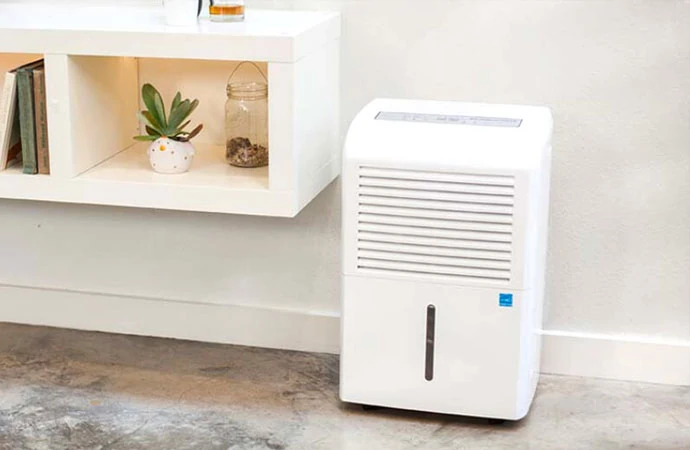
As the old cliché goes, "it's not the heat, it's the humidity." Here in Florida, we know plenty about heat and humidity. Outdoors, we mostly just have to live with it, but that doesn't mean it's not uncomfortable. After all, the reason that humid climates are uncomfortable is because of how it impedes our body's ability to sweat, thus impacting its ability to cool down.
But indoor air should be another story. Your home is supposed to be your oasis from the outdoor heat and humidity, so if your HVAC does not remove humidity well, you have a real problem.
"Inside my Florida home, I always feel sticky and sweaty, even when I keep my AC running." Is this true for you? If yes, we are here to answer your questions.
The cause of this muggy and sticky feeling is high humidity. When the indoor humidity increases, it causes you to feel uncomfortable and irritable. In this blog, we will explore the major reasons your AC unit may be failing to remove humidity.
HVAC works as an airflow system that's great at circulating air throughout your house. As the warm air passes through the ducts, it is brought to your furnace or air conditioner.
To achieve the best temperature, the air conditioner removes excess moisture so that the air is more receptive to cooling. In other words, warm air is hard to cool, so the air conditioner has a built-in dehumidifier process.
The evaporator coil is the part of the air conditioning system that removes humidity. When the HVAC system takes in air from the house, it rushes past this cold coil to cool. The moisture in the warm, humid air condenses and is extracted from the air because of the cold coil. HVAC ducts then return the cold, dry air to the house.
Humidity is the evaporated moisture in the air. The air conditioner's indoor evaporator coil removes some of this moisture as warm, muggy air blows across the refrigerant-filled coil. However, on a very humid day, the air conditioner may spend too much energy removing moisture from the air and will be unable to effectively cool down your household. This explains why an air conditioning unit may not seem to be working well on a hot, humid day, despite seeming to operate normally in other respects.
With so much energy being used to reduce the moisture in the air, it simply isn't as effective at doing its main job: cooling your indoor air environment, improving your home's air quality, and removing excess humidity from your home.
A common question that we constantly encounter is, "Why is my AC system not removing humidity?".
Too much humidity in your house? Even when your AC system is cooling, there's a chance it's not dehumidifying your space. Here are a few possible reasons why.
If your air conditioner is not dehumidifying the air in your house, you may have one of these four problems:
Your existing AC system is not the right size.
You have a ductwork leak.
Your thermostat is set to ON instead of AUTO.
Your evaporator coils are dirty.
Let's look at these problems in detail.
Size is critical when it comes to the effectiveness of your air conditioner. A system that's too small can't handle the amount of air inside your house. At the same time, an oversized air conditioner has too much cooling capacity, which prevents the unit from properly dehumidifying your house.
While it will dehumidify the house moderately, it won't deliver your preferred comfort levels. Our technicians can inspect your system and make sure you have a properly sized AC system.
If you do not have a suitably sized AC system for your house, upgrading to the right size will improve your comfort levels.
Any leaks in the ductwork introduce more water vapor into your Florida home. Your AC system will not properly absorb the excess water vapor.
The only solution to this is to fix the leaks in your ducts. Contact a technician to inspect and fix the leaks before they damage your HVAC system.
Many homeowners set their thermostat fan setting on the "on" setting when it should be set to "auto."
When the thermostat fan setting is turned on, it's always running, but when it's set to auto, the fan setting only works when your house needs cooler air.
When the fan is always moving, it releases water vapor back into your home. Check your fan settings and make sure it's set to auto.
The evaporator coil transports heat from the air to the refrigerant and also dehumidifies your house.
It is a magnet for water vapor in the atmosphere. If the coil is dirty, the water vapor will not properly absorb onto the coil.
Our technician can diagnose a dirty evaporator coil during a maintenance check and clean it. It is also good to change the air filter at least once a month to ensure the filter can protect the coil.
If humidity is still a problem in your home, there are several ways you can prevent it.
Use a Dehumidifier
This appliance is a great way to dehumidify your home. If you live in a particularly humid climate, a whole home dehumidifier might be a helpful purchase! You can opt for whole-house dehumidifiers or smaller ones that focus on one area or room in your home.
Proper Ventilation
By having proper ventilation through exhaust fans, you can ensure the air in your home isn't stale and sticky in bathrooms and other areas that generate lots of moisture.
Wipe Down Excess Water
If more moisture tends to collect in certain places in your home, take a minute to use a towel or squeegee to wipe down areas such as the walls of your shower or around your kitchen sink. This can help prevent mold growth.

If you've tried reducing humidity levels in your home to no avail, call our qualified HVAC technician at Comfort Air for a quick diagnosis. As your trusted Rheem Pro Partner, Comfort Air can help you deal with humidity problems in your home.
Your issue may be as small as dirty evaporator coils, or as serious as an air conditioning system that is too large or too small for your home, so contact us to discuss your options. We will be able to quickly and effectively diagnose and repair any issues and get your home back to feeling comfortable in no time.
Living in a humid environment sucks. Everybody deserves to live comfortably, so why suffer unbearable living conditions? Why extend the discomfort?
If you have questions and inquiries about humidity control for your HVAC system, Comfort Air can help. Contact us today at (813) 413-1726.